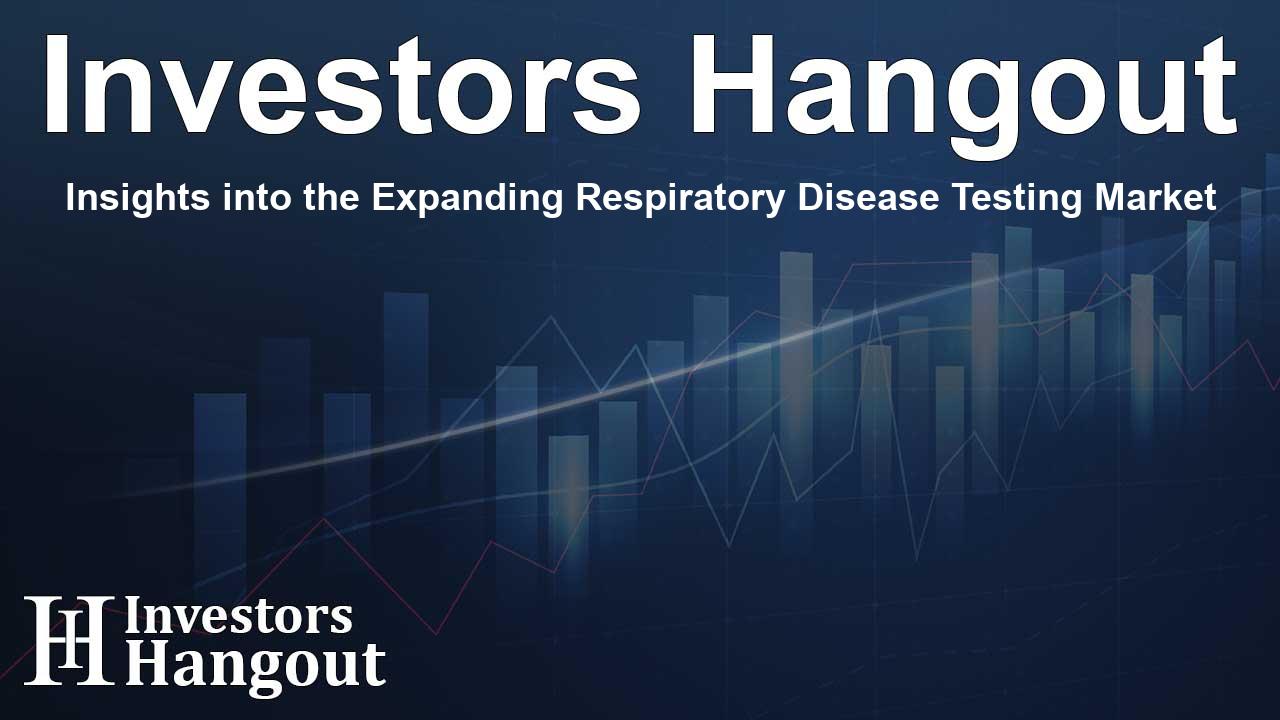Insights into the Expanding Respiratory Disease Testing Market

Understanding the Growth of the Respiratory Disease Testing Market
The surging demand for respiratory disease testing is primarily fueled by the increasing global incidence of respiratory disorders. Contributing factors, such as rising risk factors linked to these disorders and notable advancements in product development, are expected to stimulate the growth of the respiratory disease testing market through 2030.
Key Highlights from the Respiratory Disease Testing Market Insights
According to recent analyses, North America is predicted to dominate the respiratory disease testing market during the forecast period. Within the product category, instruments are anticipated to account for a significant revenue share in 2023.
Major players in this field include Koninklijke Philips N.V., Niterra Co., Ltd., Thermo Fisher Scientific Inc., QIAGEN, Abbott, and many others leading the charge in innovation and market presence.
Advanced Testing for Effective Diagnosis
Respiratory disease testing encompasses a critical range of diagnostic procedures for conditions affecting the lungs and airways, like asthma, chronic obstructive pulmonary disease (COPD), and infectious diseases such as pneumonia and COVID-19. These tests are essential for pinpointing the exact cause of respiratory symptoms, which may include difficulty in breathing, persistent coughing, or wheezing. The methodologies include both non-invasive techniques, such as spirometry and pulse oximetry, and more intricate processes like chest X-rays and CT scans.
Recent technological breakthroughs have enhanced both the speed and accuracy of respiratory disease testing. For example, molecular diagnostics, including polymerase chain reaction (PCR) tests, allow for high-sensitivity detection of various respiratory pathogens within just hours. New imaging technologies and portable diagnostic tools also make it feasible to diagnose and monitor respiratory issues in diverse settings, sparking a more tailored approach to treatment plans.
The Market's Current Landscape and Dynamics
The respiratory disease testing market has dramatically evolved, driven by factors such as the escalation of respiratory infections, continuous technological advancements, and shifts resulting from public health needs. The COVID-19 pandemic, in particular, underscored the critical importance of rapid, accurate diagnostic tests, thus expediting market innovation.
Allocating significant resources towards improving respiratory disease testing capabilities has become a priority for governments and health organizations worldwide, fostering further market growth.
Key Drivers of Market Growth
Technological innovation is crucial in reshaping the respiratory disease testing landscape. The emergence of advanced molecular diagnostic technologies, such as PCR and next-generation sequencing (NGS), has revolutionized the speed and precision of disease identification. These advancements not only enable the accurate detection of prevalent respiratory pathogens but are also instrumental in identifying emerging threats.
The Rise of Point-of-Care Testing
The growing awareness and demand for point-of-care (POC) testing significantly influence the market. POC tests provide immediate results, often in a matter of minutes, which is especially advantageous for managing and containing respiratory diseases. This rising trend encourages widespread adoption in hospitals, clinics, and home care scenarios, driven by the growing need for prompt diagnostics.
However, the market does face challenges, including high costs associated with advanced diagnostic technologies and complications in regulatory approvals. While innovation is progressing quickly, the lengthy and complex approval processes can impede the introduction of new products. Additionally, inequitable access to testing solutions, especially in lower-income regions, presents significant hurdles that highlight the urgent need for accessible and cost-effective diagnostic options.
Future Outlook on the Respiratory Disease Testing Market
As we move towards a future where respiratory disorders are becoming increasingly common, the demand for comprehensive diagnostic testing is projected to escalate, further propelling market growth in North America and beyond. The expected advancements in testing technologies will continuously shape the landscape, fostering more customized and efficient treatment approaches.
Frequently Asked Questions
What is the forecast growth rate for the respiratory disease testing market?
The respiratory disease testing market is forecasted to grow at a CAGR of approximately 4%.
What are the primary factors driving market growth?
Key drivers include the increasing prevalence of respiratory diseases, advancements in diagnostics, and heightened demand for rapid testing solutions.
Which region is expected to dominate the market?
North America is anticipated to hold the largest share of the respiratory disease testing market during the forecast period.
What challenges does the market face?
Challenges include high costs of advanced tests, lengthy regulatory approval processes, and disparities in testing access across regions.
What role do advancements in technology play in respiratory testing?
Advancements in technology significantly enhance the accuracy and speed of diagnostic tests, allowing for quick identification of respiratory pathogens.
About The Author
Contact Dylan Bailey privately here. Or send an email with ATTN: Dylan Bailey as the subject to contact@investorshangout.com.
About Investors Hangout
Investors Hangout is a leading online stock forum for financial discussion and learning, offering a wide range of free tools and resources. It draws in traders of all levels, who exchange market knowledge, investigate trading tactics, and keep an eye on industry developments in real time. Featuring financial articles, stock message boards, quotes, charts, company profiles, and live news updates. Through cooperative learning and a wealth of informational resources, it helps users from novices creating their first portfolios to experts honing their techniques. Join Investors Hangout today: https://investorshangout.com/
The content of this article is based on factual, publicly available information and does not represent legal, financial, or investment advice. Investors Hangout does not offer financial advice, and the author is not a licensed financial advisor. Consult a qualified advisor before making any financial or investment decisions based on this article. This article should not be considered advice to purchase, sell, or hold any securities or other investments. If any of the material provided here is inaccurate, please contact us for corrections.
